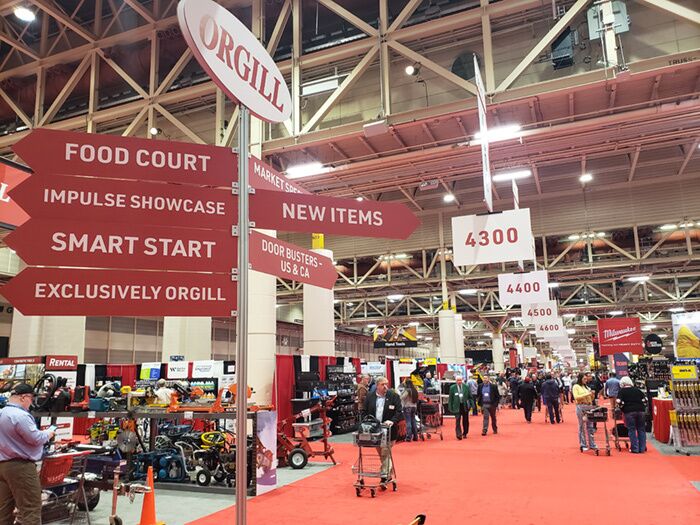U.S. Tariffs Pose Challenges for Independent Hardware Retailers; Buying Groups Respond

The recent wave of U.S. tariffs is creating new challenges for independent hardware retailers, particularly those who source products from Canada, Mexico and China. With tariffs on imports from Canada and Mexico rising to 25 percent and Chinese tariffs increasing from 10 percent to 20 percent, retailers face rising costs that could affect margins and consumer prices. Additionally, a 25 percent tariff on global steel and aluminum imports, effective March 12, is expected to drive up costs for a range of products, from tools to fasteners and building materials.
In response, major independent hardware buying groups—Ace Hardware, Do it Best and Orgill—are implementing strategies to mitigate the impact of these tariffs and support their members.
Do it Best Focuses on Pricing Stability, Strategic Purchasing
Jason Stofleth, Do it Best’s vice president of merchandising, emphasized that the co-op anticipated the tariffs and took proactive measures to shield retailers from immediate cost spikes. “We’re holding our Spring Market pricing steady despite the anticipated tariff impact, which helps our retailers lock in competitive prices and plan ahead,” he says.
To further stabilize costs, Do it Best has strengthened its inventory position and adjusted restocking plans accordingly. The company is also negotiating with vendors to delay and control price increases for as long as possible. However, Stofleth acknowledges that price hikes are inevitable, particularly in categories affected by steel and aluminum tariffs.
Do it Best is advising its members to assess current inventory and take advantage of Spring Market purchasing opportunities before inflationary pressures set in. The co-op is also providing strategic guidance on adjusting suggested retail prices to protect margins. “Retailers need to stay informed about ongoing price changes and respond accordingly to maintain their competitiveness in the market,” Stofleth says.
Orgill Leverages Supply Chain Adjustments to Minimize Impact
Orgill, which has been diversifying its supply chain since 2018, is leveraging those adjustments to navigate the new landscape. At the Orgill Spring Market in New Orleans in February, CEO Boyden Moore noted that the company has steadily reduced its dependence on Chinese sourcing, bringing it down from 85 percent to below 50 percent, and encouraged retailers to take advantage of special discounts on more than 55,000 items before the tariffs take full effect.
“We went through tariffs a few years ago, and we’ve been working ever since to diversify as much as possible,” Moore said. While acknowledging the complexities of the current trade environment, Moore expressed confidence that Orgill’s experience would help the company manage this round of tariffs effectively.
Ace Hardware: Sourcing Diversification and Margin Protection
Ace Hardware retailers raised many questions about tariffs during the company’s recent Spring Convention in San Antonio. Senior vice president of merchandising Brian Wiborg reassured attendees that Ace had locked in pre-tariff pricing for all deals at the show, enabling retailers to buy at discounted rates before higher costs arrive.
“Our sourcing strategy is a strength,” Wiborg explained, noting that Ace sources products from more than 75 countries, with 51 percent of its volume coming from the United States, 26 percent from China and 8 percent from Mexico. The company has sourcing teams in China, Vietnam and Mexico, and is expanding into India to diversify its supply base further.
Wiborg also emphasized that Ace’s priority is protecting retailer margins. “Just like with the [Section] 301 tariffs in 2018 and 2019, we will protect your margin,” he said in San Antonio. Ace buyers are negotiating cost justifications and tariff mitigation plans with vendors. If price increases occur, the company will pass them on to consumers to preserve retailer profitability, according to Wiborg.
Retailers are also being urged to stay proactive. “The key thing is to keep up with tariff changes,” Wiborg said. “Last time, the average store left about $100,000 on the table because they couldn’t adjust quickly enough.” To address this, Ace has introduced a new system to track tariff-related pricing changes and help retailers adjust in real time.


